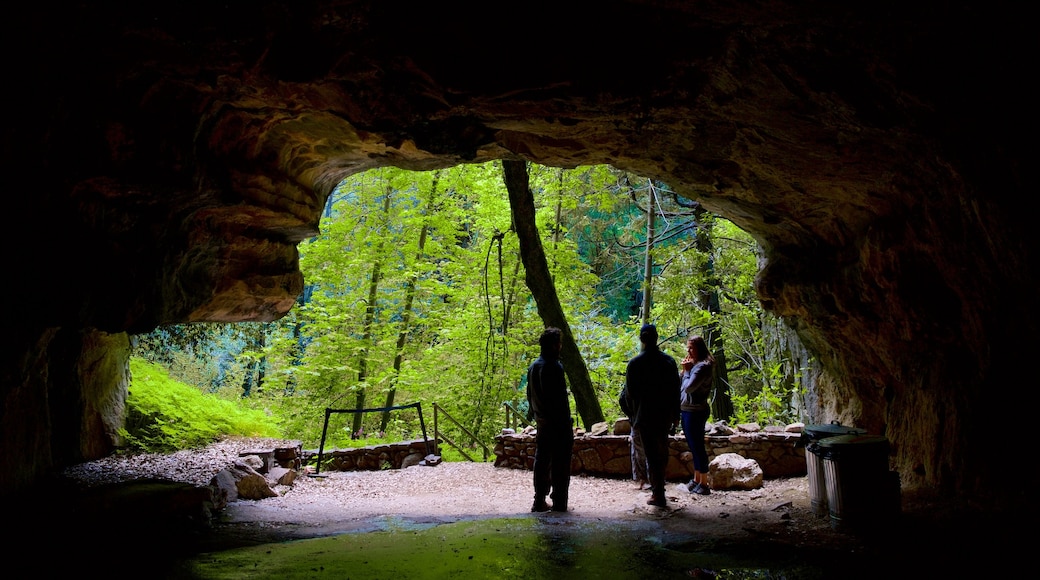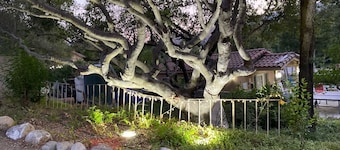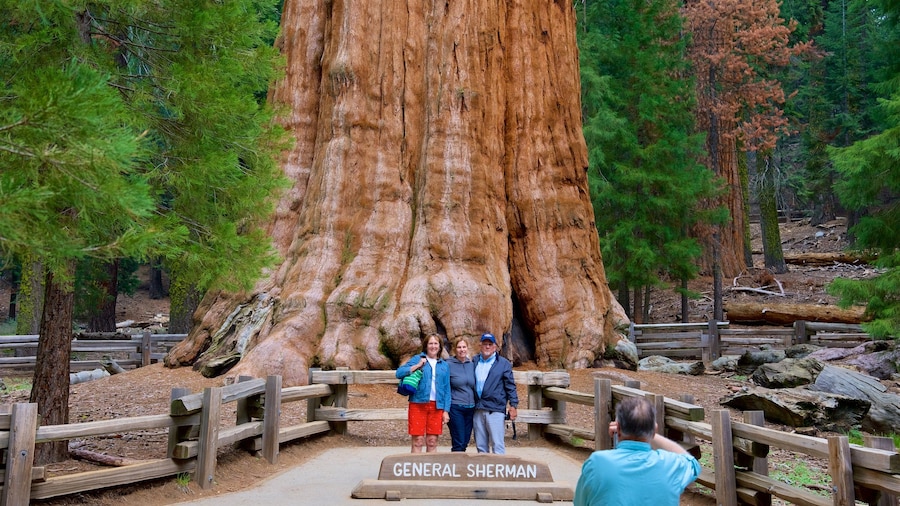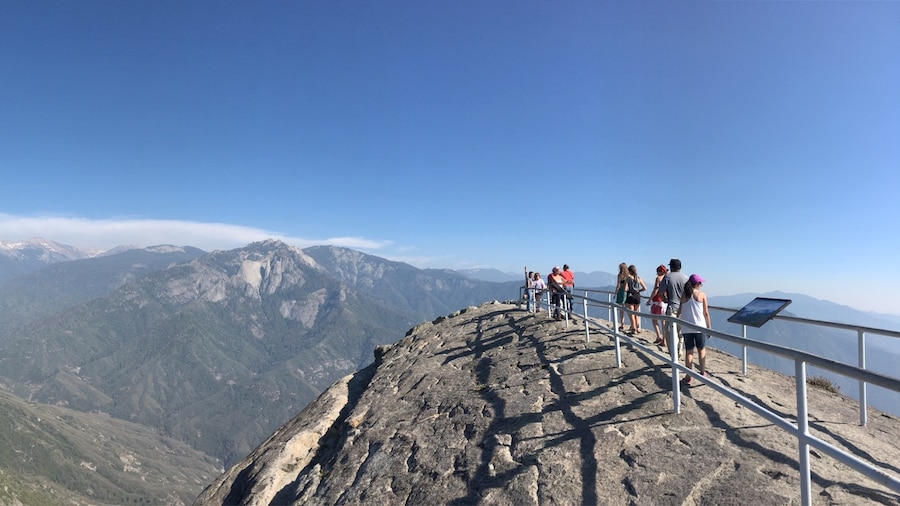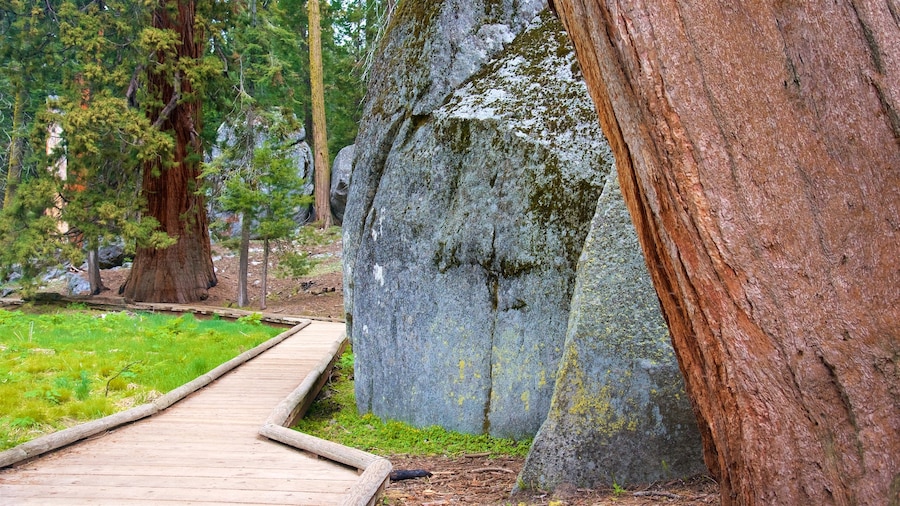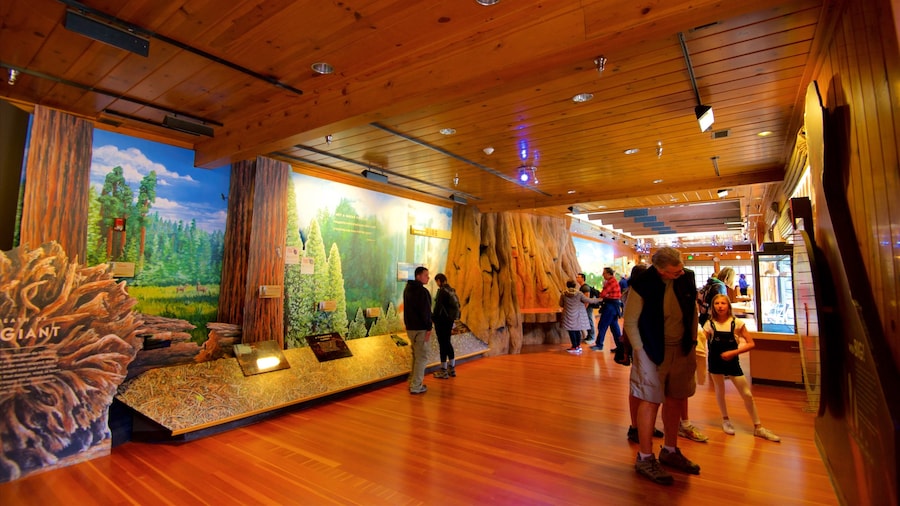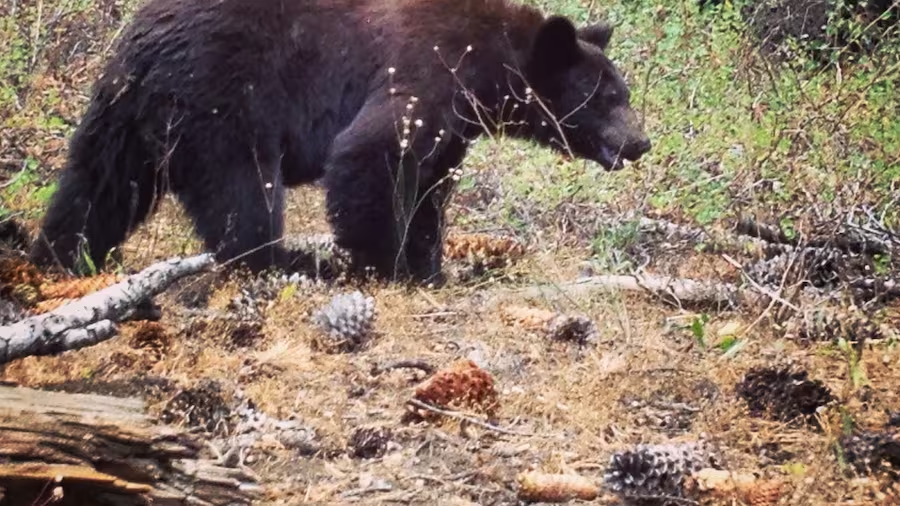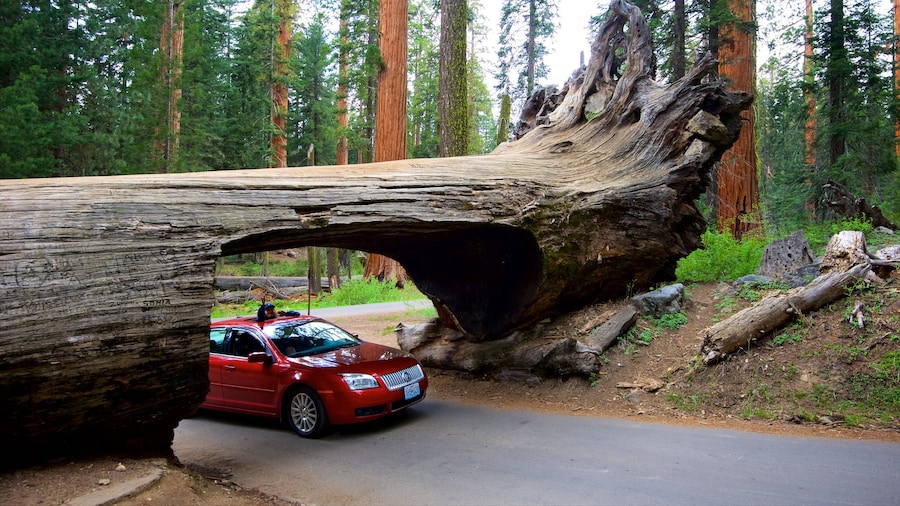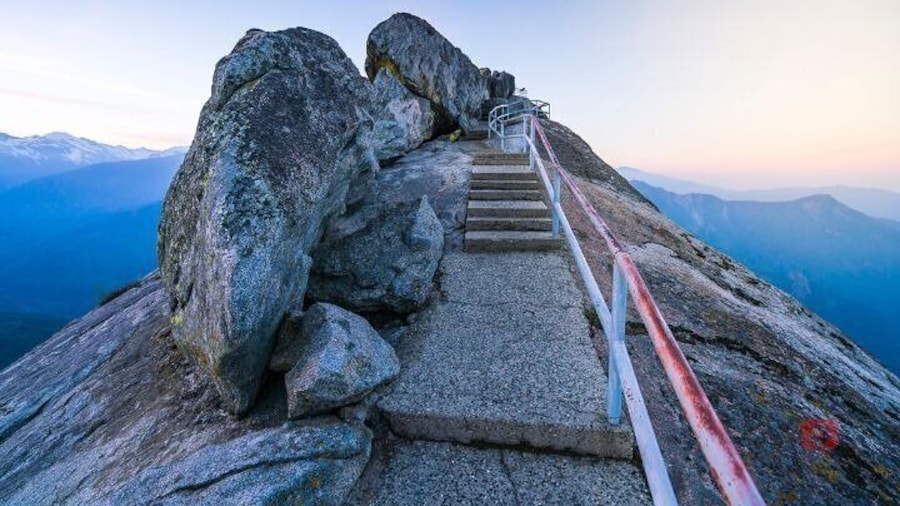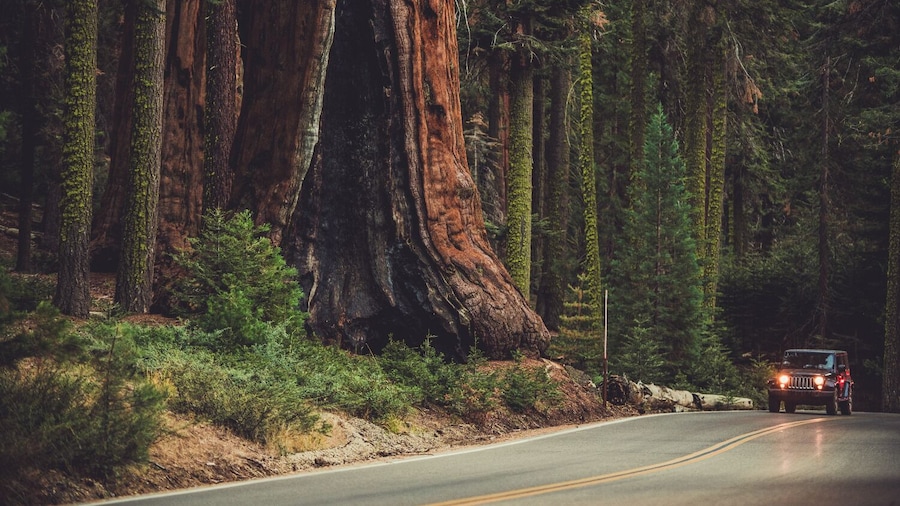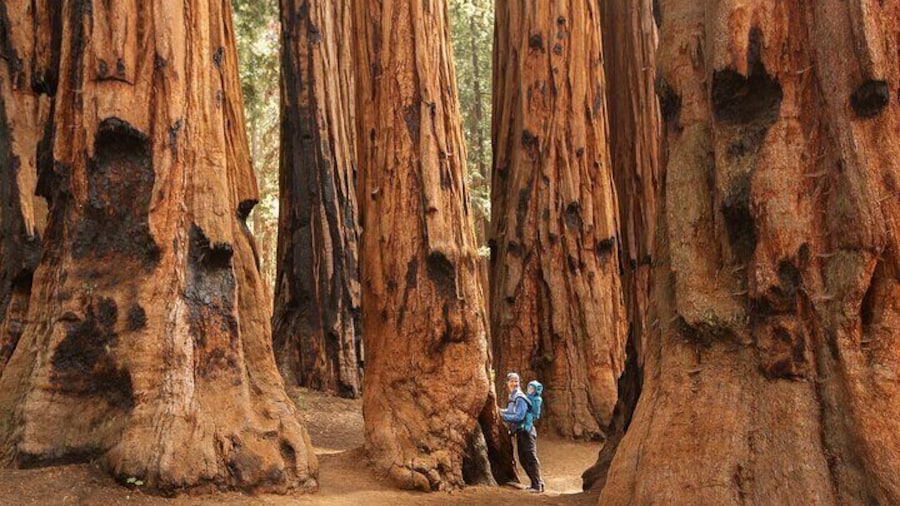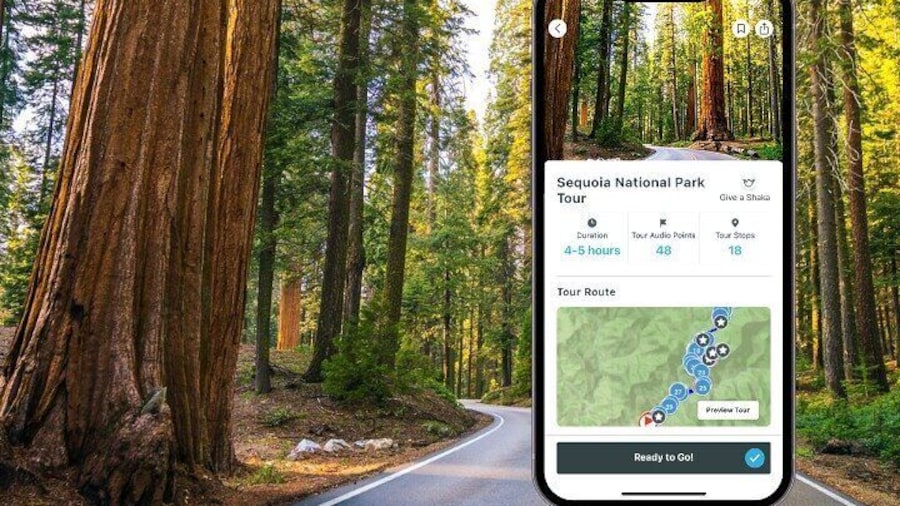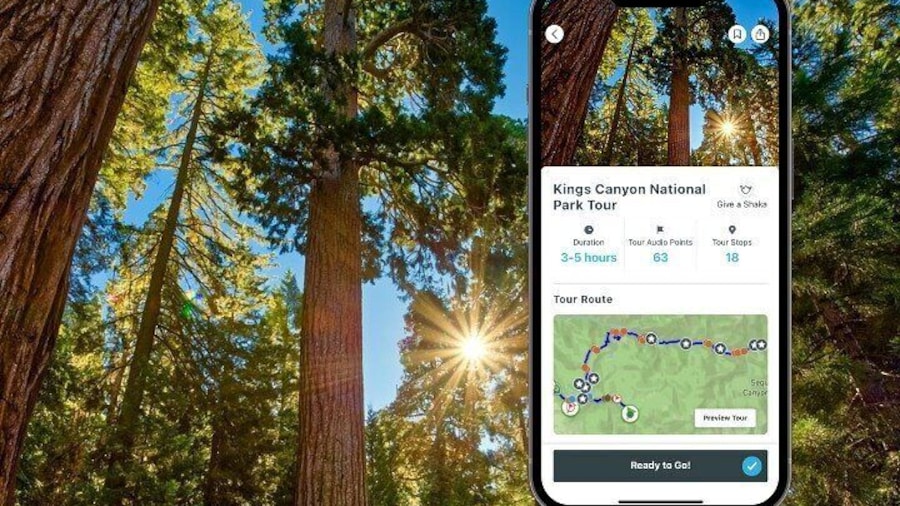See some of the largest and oldest living organisms on earth in parkland filled with trees, mountains, caves and beautiful views.
California’s Sequoia National Park provides dual attractions of gigantic trees and fascinating geological features. View wide trunks of giant sequoias and tip your head far back to see their tops high in the sky.
Gather friends to determine how many people are needed to make a circle around a sequoia. For a different perspective, drive your car through “Tunnel Log,” a fallen sequoia on Crescent Meadow Road. Stop for a quiet picnic amid colorful wildflowers.
Visit Giant Forest Museum for information about the biology and history of the sequoias. From the museum, walk along the Big Trees Trail, an interpretive 0.6-mile (1-kilometer) paved loop through a sequoia grove. The statistics on sequoias are impressive. Some trees are 3,000 years old. These evergreens grow to 300 feet (90 meters) in height and 40 feet (12 meters) in diameter. Look for General Sherman, the largest known sequoia in the United States.
Find challenging hikes throughout the park. The Foothills section parallels the Kaweah River. Mineral King, once mined for silver, offers great backpacking up a steep valley. Along the lengthy and scenic Little Five Lakes Trail you’ll see peaks over 12,000 feet (3,600 meters) tall. In winter, snowshoe or cross-country ski on over 40 miles (60 kilometers) of marked trails. For views of Mt. Whitney, make the strenuous day hike to 11,200-foot (3,400-meter) Alta Peak.
Lodgepole Village near the park’s western entrance has a market and visitors center. Purchase tickets here to tour Crystal Cave, a 10,000-year-old formation carved by an underground river. Take advantage of ranger-led tours and talks. Learn how forest fires support preservation of these long-lived tree species.
Sequoia National Park and nearby Kings Canyon National Park are located in California’s Sierra Nevada Mountains and are open year-round. Purchase a daily pass that allows entry to both parks or buy an annual interagency pass for access to all U.S. national parks.
Forward-thinking leaders created Sequoia National Park in 1890 to ensure preservation of these amazing specimens for future generations. Come appreciate trees that were already giants when your grandparents visited the country’s second established national park.




